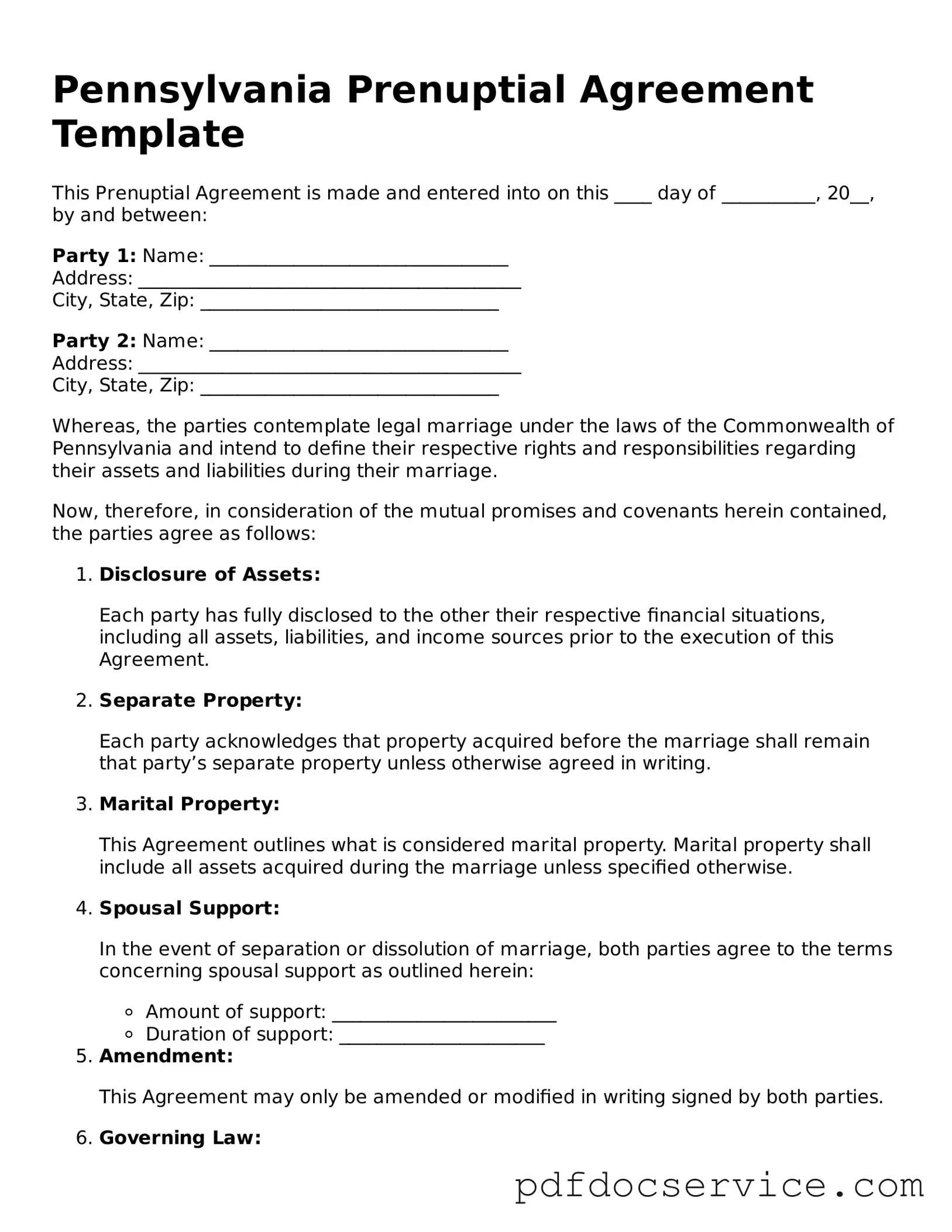What is a Pennsylvania Prenuptial Agreement?
A Pennsylvania prenuptial agreement is a legal document that a couple creates before getting married. It outlines how assets and debts will be handled in the event of divorce or death. This agreement can help clarify financial responsibilities and protect individual interests.
Why should I consider a prenuptial agreement?
There are several reasons to consider a prenuptial agreement:
-
Asset Protection:
It can protect your individual assets acquired before marriage.
-
Debt Management:
It can clarify responsibility for debts incurred before and during the marriage.
-
Financial Clarity:
It helps set expectations regarding financial matters, reducing potential conflicts.
-
Estate Planning:
It can assist in planning for inheritance and other estate-related issues.
What should be included in a prenuptial agreement?
A comprehensive prenuptial agreement typically includes:
-
Identification of separate and marital property.
-
Debt responsibilities and liabilities.
-
Spousal support or alimony terms.
-
How assets will be divided in case of divorce.
-
Provisions for any future children, including custody and support.
Is a prenuptial agreement legally binding in Pennsylvania?
Yes, a prenuptial agreement is legally binding in Pennsylvania, provided it meets certain criteria. Both parties must enter the agreement voluntarily, and it should be fair and reasonable. It’s advisable for each party to have independent legal counsel to ensure that their rights are protected.
Can a prenuptial agreement be changed after marriage?
Yes, a prenuptial agreement can be modified or revoked after marriage. Both parties must agree to the changes, and it is recommended to document any amendments in writing. This ensures clarity and helps avoid future disputes.
How do we create a prenuptial agreement?
To create a prenuptial agreement, follow these steps:
-
Discuss your financial situation openly with your partner.
-
Draft the agreement, either by using templates or with the help of a lawyer.
-
Review the agreement together and make necessary adjustments.
-
Both parties should sign the agreement in the presence of a notary.
When should we start discussing a prenuptial agreement?
It’s best to discuss a prenuptial agreement well before the wedding. Starting the conversation early allows both parties to consider their financial situations and preferences without the stress of impending nuptials. Open communication is key to ensuring that both partners feel comfortable and respected.
What happens if we don’t have a prenuptial agreement?
If you don’t have a prenuptial agreement and later decide to divorce, Pennsylvania law will dictate how your assets and debts are divided. This can sometimes lead to disputes and a longer, more complicated divorce process. Without a prenuptial agreement, you may have less control over the outcome.

